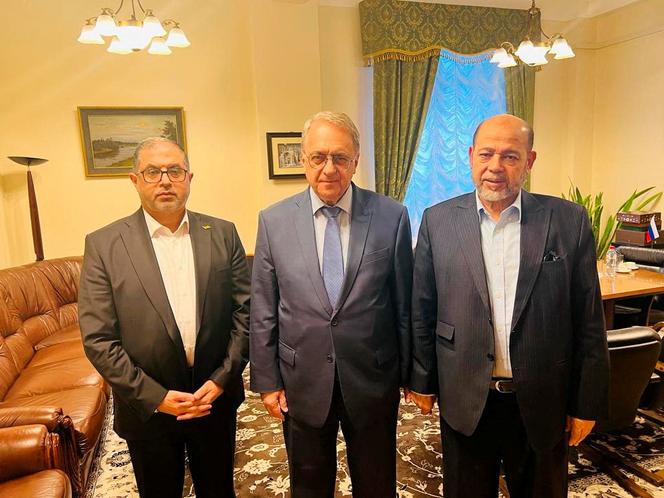


Hamas's trip to Russia on Thursday, October 26, was a rare one, given that their leaders' contacts with the outside world are mostly limited to discreet consultations in the Arab countries that host them. Russia officially welcomed a delegation from the Palestinian Islamist resistance movement that day, led by one of the members of Hamas's political bureau, Moussa Abu Marzouk.
First announced by the official RIA Novosti agency, the visit was confirmed by Russia's Foreign Ministry spokesperson Maria Zakharova. It then emerged that the delegation had been received by Mikhail Bogdanov, who is both deputy foreign minister and Vladimir Putin's representative for the Middle East. Bogdanov had also received the Iranian Deputy Foreign Minister Ali Bagheri Kani on the same day, according to Russian diplomacy.
After the meeting with Hamas, Russian diplomatic sources assured agencies, anonymously, that it had focused on the issue of hostages held in Gaza since the October 7 terrorist attack in Israel. Moscow insisted on "the immediate release of foreign hostages," according to these sources, and discussed "issues related to the evacuation of Russian and other foreign citizens from the territory of the Palestinian enclave."
According to the latest figures provided by the authorities, Russia counts 20 nationals among the victims of the October 7 attack, and three others are being held hostage in Gaza. Abu Marzouk did not respond to Le Monde's request for comment, but another member of the delegation, introduced as "Abu Hamid," assured the Russian daily Kommersant that the release of the "civilian prisoners" was impossible without a ceasefire, which is essential to "find" the people who have been captured by "various Palestinian groups" in the Gaza Strip. According to this representative, 50 hostages have so far been killed "as a result of Israeli bombardments."
In addition to Moscow's unusual concern for its citizens held hostage, the visit of such a delegation – which is not a first for a group that Russia does not designate as terrorist – also reflects Moscow's new positioning on this matter, for very political purposes.
Russia has retained important leverage in the region, having maintained contacts with just about every player from the Middle East to the Arabian Gulf. Playing a role in any negotiations would be a way for the Kremlin to dispel the international isolation and pariah role in which the West would like to see it confined.
You have 35% of this article left to read. The rest is for subscribers only.
